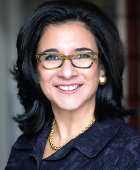Join Your Colleagues for an Exciting Annual Meeting in San Diego

APA’s 2017 Annual Meeting is fast approaching, so I’d like to tell you about some of the great sessions and events that will headline our gathering in San Diego in May. Our theme this year is “Prevention Through Partnerships.” I chose this theme largely because change in today’s medical landscape has accelerated, and as it does so, it becomes more focused on prevention.
That shift has brought about a shift in the way we approach mental health care, with psychiatrists increasingly working in primary care settings as part of integrated care models. As medical leaders for the mind, brain, and body, we have embraced our new role, spurred on by the exciting idea that one day we will be able to consistently identify those at risk for mental illness and treat them before they present any life-changing symptoms. To realize that goal, we need to make use of our skills as leaders in mental health care to develop partnerships with other disciplines in medicine and within our communities as well. In keeping with this theme and because preventive strategies through partnerships will be a centerpiece of 21st century medicine and psychiatry, APA has dedicated an entire educational track to prevention.
There is plenty of reasons for members and non-members alike to be excited about the meeting this year. Once again, our Scientific Program Committee (SPC) is headed by Dr. Philip Muskin, who has done an incredible job of designing a program that will provide attendees the knowledge and understanding necessary to help them practice effectively in this rapidly changing environment. The SPC has assembled over 450 educational sessions that cover the full range of psychiatric and practice-related topics, spread across eight topic tracks, including addiction psychiatry, child and adolescent psychiatry, forensic psychiatry, geriatric psychiatry, psychosomatic medicine, and, of course, prevention. The meeting also includes a track specifically tailored for residents, fellows, and medical students to support their professional growth. Our eighth track is a special research track sponsored by the National Institute on Alcohol Abuse and Alcoholism (NIAAA) in partnership with APA. It offers 13 sessions designed to bring the latest research findings in this area to practicing clinicians (see page 10).
We know more about the brain than ever, and a range of new treatments is being developed, spanning from pharmacological to behavioral interventions. In keeping with this spirit of innovation, APA’s Division of Education has implemented new and engaging ways to make the Annual Meeting experience as meaningful as possible. The Innovation Zone, which will be located on the Annual Meeting exhibit floor, is dedicated to answering the question “What is next in technology?” and serves as the premiere showcase and catalyst for the advancement of new mental health technologies. It is designed so that attendees at every level can learn and network with leaders in mental health technology.
The interactive Learning Labs place a focus on hands-on learning, collaboration, and rich discussion around issues impacting psychiatry. Innovation and Design Thinking in Mental Healthcare is an interactive workshop that will help attendees learn about why innovation is difficult. As well they will be able to identify the tools and resources available and learn to utilize design in crafting treatment plans that can increase patient engagement. In another session, “Mock Depositions: What You Need to Know Before Sitting in the Hot Seat,” attorneys will question a defendant psychiatrist, plaintiff, and expert witnesses and teach participants risk management principles and tips throughout the case.
Laura Roberts, M.D., M.A., will lead resident fellows and early career psychiatrists on a two-day leadership boot camp that will cover topics such as leadership and networking skills, self-advocacy, giving feedback, negotiation, work-life balance, and practical habits for success.
Our guest speaker at the Convocation of Distinguished Fellows will be journalist Elizabeth Vargas, who anchors ABC’s “20/20.” Vargas is an award-winning anchor and correspondent who has traveled the world covering breaking news stories, reporting in-depth investigations, and conducting newsmaker interviews. She has also spoken about her own struggle with anxiety and alcohol abuse with candor and insight that has become her signature, particularly in her memoir Between Breaths: A Memoir of Panic and Addiction. I look forward to learning from her insight and experience when she delivers the William C. Menninger Memorial Convocation Lecture on Monday, May 22 (see page 3).
All of this will come together in San Diego from May 20 to 24. In addition to being one of the top meeting destinations in the country, San Diego boasts over 70 miles of beautiful coastline and is truly one of the jewels of the West Coast. The city is a friendly and vibrant place that is brimming with culture and plenty of activities for everyone to enjoy. I can’t think of a better setting for us to develop the collaboration and exchange of ideas necessary for a better future for our patients and our profession.
This issue of Psychiatric News contains the meeting’s preliminary program and information on special sessions and our host city. For the most up-to-date information, please check the Annual Meeting section and follow @APAPsychiatric on Twitter. I hope you will join the conversation and engage in live tweeting during the meeting using #APAAM17. The free APA Meetings App is available now with more features than ever, so please download and share with your colleagues.
The APA Annual Meeting is the foremost psychiatric event in the world. It represents the best chance of the year to get to know colleagues from all over the world and learn about the work they are doing and the scientific progress being made in our field. We’ve got a spectacular program this year, and I look forward to seeing you in our host city of San Diego this May! ■



